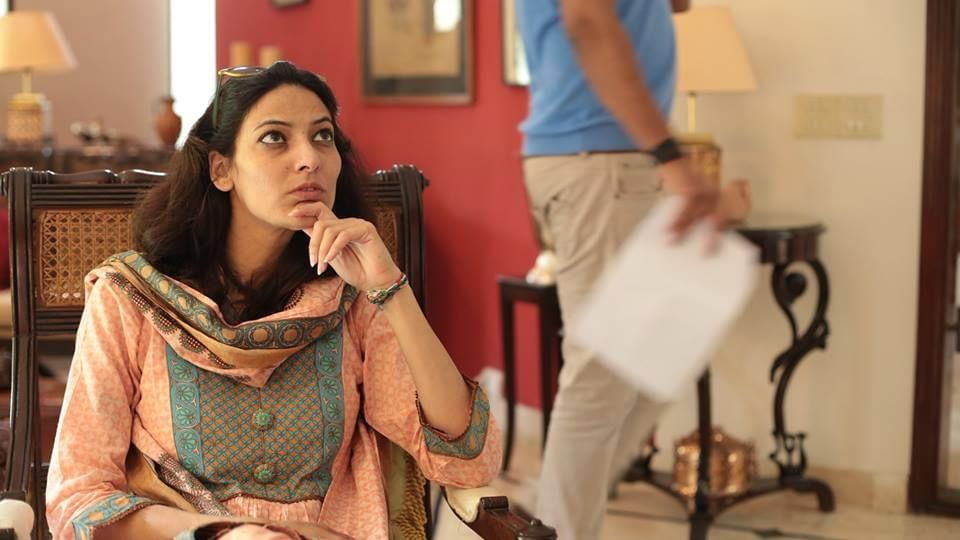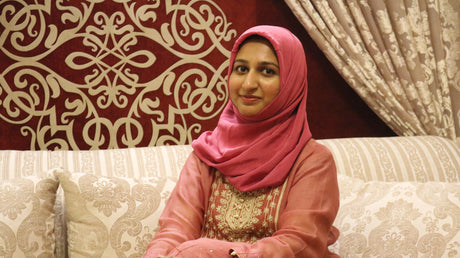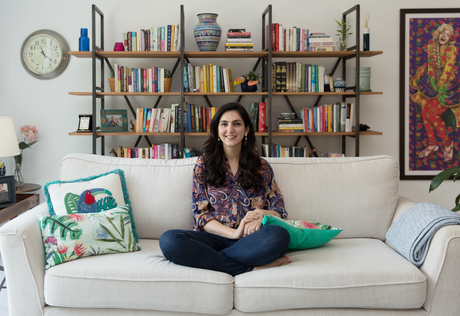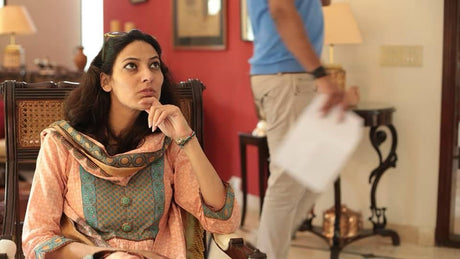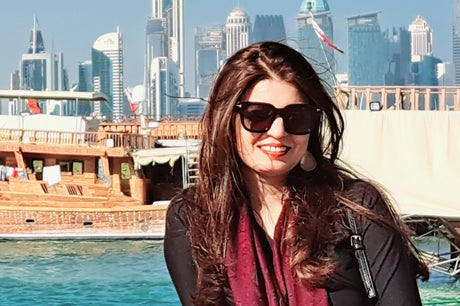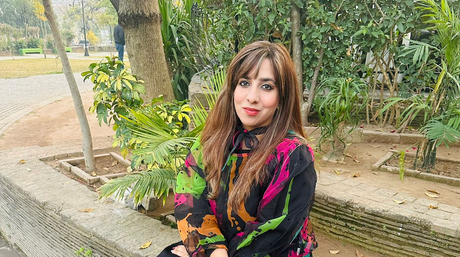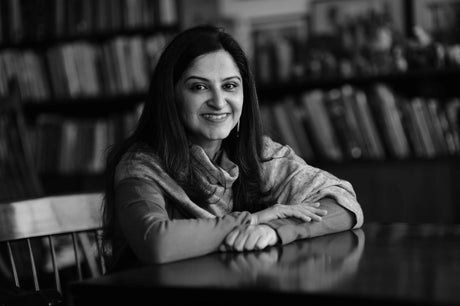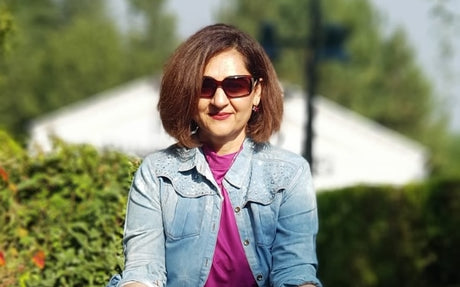In the realm of research and strategy, Maria Patel stands tall as a seasoned team lead, wielding over 17 years of invaluable industry expertise. Her illustrious career spans pivotal roles across the development sector, media organizations, and premier advertising agencies in Pakistan. Maria's journey is marked by a commitment to impactful projects that challenge boundaries and redefine narratives.
One of Maria's notable endeavors began in December 2021, as the Lead Researcher in South Asia for Innovation for Change, South Asia Hub, and Bytes for All, Pakistan. Her work focused on exploring The Impact of China’s Belt & Road Initiative (BRI) in South Asia, along with the Mapping of the Disinformation Ecosystem in Seven Countries. Maria's strategic vision came to life with the launch of BRIWatch.info, a South Asia-wide monitoring website that has become a beacon of information through its bi-monthly newsletter.
Maria's dedication to shedding light on critical issues extends beyond her work with Innovation for Change. In 2021, she conducted a feasibility study to find a digital solution for the forced conversion of minority girls, leading to the creation of the documentary 'The Losing Side,' which earned acclaim at The Cannes World Film Festival. Maria's impact is also felt in her USIP Grant project, where she maps and documents the narratives of displaced communities in Karachi and Islamabad.
Maria's journey is not just about professional accomplishments; it's also about understanding the roots of social issues. Hailing from a Kokani family with a history of education and government service, Maria's upbringing has instilled in her a deep sense of responsibility towards creating positive change. Her grandfather's decision not to claim their land in India, despite its potential benefits, has shaped Maria's perspective on societal challenges, especially those at the intersection of class and religion.

Through her multifaceted work, Maria Patel continues to craft narratives that inspire, inform, and advocate for change, leaving an indelible mark on the landscape of research, strategy, and social impact.
This new series of interviews by Nani aims to shed the spotlight on amazing Pakistani women who share their insights about work, motherhood, and more, providing a platform for their stories to inspire and empower.

Maria, what drove your passion for social innovation and improving the welfare of individuals and communities?
I think it all has to do with my personal family story. Upon migrating to Pakistan, the timber market was being set up in Karachi near the Mohajir camp and my grandfather also became a timber merchant because of his experience of knowing the value of wood and what it means to let it grow and nurture. He was happy, settling down to this new environment but then one day, a fire broke out in the camp and my grandfather's shop burnt to ashes.
My father was only in school then. Unfortunately, my grandfather didn't know any other work, so he found it difficult to recover from the loss. It completely broke his back and my father's struggles began from there. He started working while only in school. He chose accounting as his field and was associated with the automobile industry in Pakistan. My father was a grounded person, even when he was doing really well in life, he showed us how people lived across the class spectrum. And he asked us not to be disgusted by their living conditions as no one wishes to live like that. It is the circumstances. My mother was a government teacher and always taught in marginalized areas. During elections, when my mother had long and tough duty hours, my father would take us to her workplace. There, the neighbors, whose children attended the school where she taught, would send food for us. While waiting for our mother to finish her duty, we played with these children. Despite the challenging living conditions we witnessed, such as small quarters with tin roofs, bathrooms without roofs, and narrow alleyways with standing water, we never felt disgusted. Instead, we developed a deep sense of empathy for their circumstances.
Many times, our dinner table conversations revolved around helping those in need. My father carried a sense of guilt for his privilege, which I believe I inherited as generational wealth. We were taught never to leave the dinner table without expressing gratitude and acknowledging how fortunate we were compared to others. This upbringing has instilled in me a continuous drive to find ways to improve people's lives sustainably, beyond just providing monetary assistance. For example, if someone asks for money because they're hungry, I would prefer to help them learn how to grow their food rather than simply providing a meal. I am driven to find ways to enhance quality of life, believing that true societal progress comes from ensuring everyone has dignified living standards.

What inspired the creation of TheDisplacement.com, and what is its core mission?
I think the fear of being displaced and the anxiety of being associated with, or belonging to, a land is very strong. Being aware of existentialism and how safety and security are attached to land and community is something I am fully aware of. I know what belonging to a place and a country can offer.
I have first-hand accounts of those Muslims who faced communal violence in India - they are not strangers, but family. During the Babri Masjid crisis when I was a very young child, I heard my parents and grandparents discussing how it was affecting Muslims and our relatives. Since then, I have realized that whenever I hear about a crisis displacing people, I know that women and children will be disproportionately affected. Children may be forced into labor to help rebuild what was lost or because their families cannot afford to provide for them or send them to school, making labor seem like the safest option. Women become more vulnerable to gender inequality, sexual and gender-based violence. Displacement reinforces discrimination and socioeconomic disadvantages, leading to neglect of shelter, security, access to health, and education.
In 2022, when I moved to Islamabad, I became aware of the housing crisis. Real estate agents explained that it was due to the influx of Afghans after the Fall of Kabul in August 2021. The perception was that these Afghans, who moved to Islamabad primarily as asylum seekers and embassy workers, were financially well-off. This was troubling to me, as it seemed like we were taking advantage of vulnerable people affected by war in ways we didn't fully understand.
Later, I worked on a project involving women Afghan journalists in Pakistan, who were waiting for visas or accessing embassies. Pakistan served as a transitional place for them, but they faced legal restrictions that prevented them from working or accessing health and education services for their children. This situation led to severe depression among many of these women, with one even committing suicide under pressure. Talking to them made me realize the challenges they faced before and after displacement. Many of these women described the uncertainty of waiting for their fate, not knowing if their visas would be extended without exploitation. This experience prompted me to create an anthology to explore the ways individuals and communities are displaced and affected. I aim to find legal solutions to ensure their rights are protected.
At Displacement.com, I am archiving first-hand accounts, conducting research, and writing policy briefs to provide sustainable and legal solutions for displaced individuals. I am focusing on two main categories of displacement: climate and conflict. Under the conflict category, there are three sub-categories. This work is essential for academics, policymakers, and governance bodies to identify gaps and provide sustainable solutions.

Your communal public bathroom initiative is unique. How does it contribute to advancing gender equality?
One in three women are subjected to gender-based violence (GBV) or Violence Against Women and Girls (VAWG) - it is global pandemic recognized by UN Women, the World Bank, UNICEF, EU, WaterAid, etc…more or less all of the developmental organizations.
The number of women and girls experiencing gender-based violence (GBV) and sexual violence is equivalent to the number of people lacking access to a bathroom. This fact underscores the severity of the situation. The idea that I cannot use the bathroom without worrying about someone walking in, even if it's my father, brother, or in-laws, speaks volumes about safety, security, mental health, privacy, and overall well-being. This realization prompted me to think of ways to provide people with safe bathrooms.
Communal public bathrooms emerged as a unique solution. To ensure their success, I conducted a needs assessment and designed the solution based on community feedback and full participation. Prior to this intervention, community members used bathrooms made of curtains and cloth, which became unusable during rain or thunderstorms. These makeshift bathrooms lacked doors, leading to instances of men walking in on women. This situation strained relationships and compromised hygiene, as many could not shower for days.
Using the information gathered through focus group discussions (FGDs) and firsthand accounts, I designed the communal bathrooms to address these challenges. I studied the impact of the bathrooms on daily life and well-being for a month and observed immense positive changes. Today, the community not only values and celebrates their bathrooms but also takes ownership of keeping them clean. Women from nearby neighborhoods also use these facilities without any issues, and the community is supportive of this arrangement. I installed two bathrooms for 14 households and 76 people, with 70% of the community comprising women and children.

'The Losing Side' won the Human Rights Award at Cannes. How did the documentary contribute to raising awareness about forced conversion and forced marriages?
Jawad Sharif is the director of the film and I did the storytelling for the documentary. He gathered first-hand accounts of women who went through forced marriages and their challenges in seeking justice. It is a commentary on the existing laws and gaps which limit access to justice for some who are already poor and marginalized. It is a great documentary highlighting what laws can be adopted to make an equitable society for all where anyone can seek justice without getting threatened. Unfortunately, the documentary is not ready to be released for public viewing because of some unprecedented events and unforeseen issues.
Can you share an example where your efforts led to positive connections between communities?
I work hard to bridge gaps between communities and to avoid discrimination. All my work is focused on it. I try to highlight this through research, storytelling, and dialogue.
Can you share a personal or professional experience that exemplifies your commitment to truth-seeking and diverse perspectives?
In everything I do, my primary concern is seeking truth and providing a narrative for the challenges faced by marginalized and discriminated communities. Unequal opportunities form the basis of unequal societies, and to address this imbalance, it is crucial to highlight these issues through firsthand accounts.

What advice do you have for young women aspiring to become leaders in social innovation and community development?
Know your objectives, set your goals, and be ready to get disappointed. But also know that persistence can take anyone a long way, and eventually only a persistent one wins. I learnt this by watching evil people. They win by being consistent and persistent and by not giving up on their cause. So, if you want to bring a positive change, you have to have a goal that looks boring on the surface. But see, for many, peace sounds boring as they think along the lines of; 'kuch hungama hona chahye zindagi mein' - and that's the reason the pursuit of peace goes on the backburner. That's the reason why people who have evil intentions end up winning. Communities are not built through selfishness. We need more consistency, deliberation, and willingness to achieve a beautiful society.

What's your one, big dream Maria?
I envision a society where everyone feels safe, secure, and a sense of belonging. My goal is to maximize peace. I understand that this dream is holistic, so I am committed to doing whatever it takes to achieve it.

